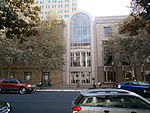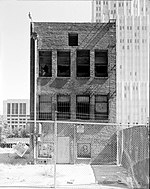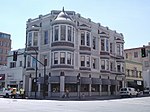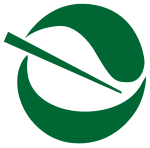Sacramento, California

Sacramento ( SAK-rə-MEN-toh; Spanish: [sakɾaˈmento], Spanish for ''sacrament'') is the capital city of the U.S. state of California and the seat and largest city of Sacramento County. Located at the confluence of the Sacramento and American River in Northern California's Sacramento Valley, Sacramento's 2020 population of 524,943 makes it the sixth-largest city in California and the ninth-largest capital in the United States. Sacramento is the seat of the California Legislature and the Governor of California, making it the state's political center and a hub for lobbying and think tanks. It features the California State Capitol Museum. Sacramento is also the cultural and economic core of the Greater Sacramento area, which at the 2020 census had a population of 2,680,831, the fourth-largest metropolitan area in California.Before the arrival of the Spanish, the area was inhabited by the historic Nisenan, Maidu, and other indigenous peoples of California. Spanish cavalryman Gabriel Moraga surveyed and named the Río del Santísimo Sacramento (Sacramento River) in 1808, after the Blessed Sacrament. In 1839, Juan Bautista Alvarado, Mexican governor of Alta California, granted the responsibility of colonizing the Sacramento Valley to Swiss-born Mexican citizen John Augustus Sutter, who subsequently established Sutter's Fort and the settlement at the Rancho Nueva Helvetia. Following the American Conquest of California and the 1848 Treaty of Guadalupe-Hidalgo, the waterfront developed by Sutter began to be developed, and incorporated in 1850 as the City of Sacramento. Sacramento is the fastest-growing major city in California, owing to its status as a notable political center on the West Coast and as a major educational hub, home of California State University, Sacramento and University of California, Davis. Similarly, Sacramento is a major center for the California healthcare industry, as the seat of Sutter Health, the world-renowned UC Davis Medical Center, and the UC Davis School of Medicine. It is a tourist destination, featuring the California Museum, Crocker Art Museum, California State Railroad Museum, California Hall of Fame, and Old Sacramento State Historic Park. Sacramento International Airport, located northwest of the city, is the city's major airport. Sacramento is known for its evolving contemporary culture, and is dubbed the most "hipster city" in California. In 2002, the Harvard University Civil Rights Project conducted for Time magazine ranked Sacramento as "America's Most Diverse City".
Excerpt from the Wikipedia article Sacramento, California (License: CC BY-SA 3.0, Authors, Images).Sacramento, California
9th Street, Sacramento
Geographical coordinates (GPS) Address Phone number Website Nearby Places Show on map
Geographical coordinates (GPS)
| Latitude | Longitude |
|---|---|
| N 38.581666666667 ° | E -121.49444444444 ° |
Address
La Bou Bakery & Cafe
9th Street 900
95814 Sacramento
California, United States
Open on Google Maps










